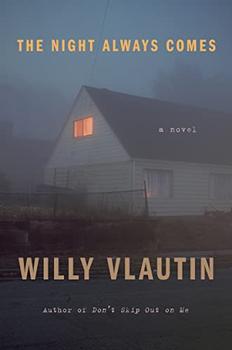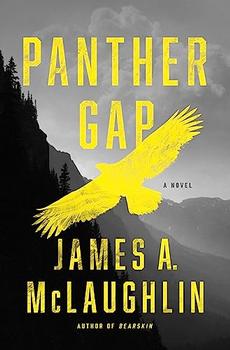Summary | Excerpt | Reading Guide | Reviews | Beyond the book | Read-Alikes | Genres & Themes | Author Bio

Approaching 30, Lynette has spent the past three years juggling multiple jobs so that she, her mother, and her developmentally disabled brother can buy the run-down Portland house they have always called home. Concerned about the cost and the rapid urbanization of the neighborhood, Lynette's mother pulls out of the deal at the last moment, taking her financial contribution with her. Still desperate to ensure stability for her brother, Lynette embarks on a dangerous two-day mission to make up the shortfall. She hopes to pull together the last of the money she needs to afford the mortgage deposit on her own before the bank rescinds their offer. But this means reconnecting with various figures from her past — some of Portland's most morally questionable citizens. This journey ignites old traumas for Lynette and pushes her family to a breaking point, as the reader comes to understand just how much she has suffered in her bid to find security.
Willy Vlautin lays bare the dark side of gentrification, showing how working-class and marginalized groups are systematically squeezed out of their own communities — victims of meager pay and a lack of opportunity. The American Dream promises that hard work will reap rewards, but an uneven playing field makes this all but impossible for most. Vlautin shows how the pursuit of that dream widens existing gaps in attainment, fostering a culture of selfishness and a toxic cycle of greed, violence and exploitation.
While it's a relatively slight novel, Vlautin skillfully develops the two most prominent characters — Lynette and her mother. Their relationship is incredibly complicated due to their difficult past, and both prove themselves capable of being cruel and kind in equal measure. It is testament to their complexity that, for all the painful choices they are forced to make and all the objectively bad things they do, they are still sympathetic. Readers will be rooting for them to get their happily ever after. Due to the swift pace, the supporting cast doesn't receive this same level of nuance, but each character does provide further insight into the scale of Lynette's struggles.
The writing style itself is somewhat economical. Though this means it doesn't wow on a sentence-by-sentence level, the prose reflects the starkness of Lynette's situation, propelling the narrative forward with a fitting sense of urgency. Indeed, the brutal yet never sensationalist situations that Lynette finds herself in capture the reality of life in a downward spiral, hurtling her — and the reader — toward the story's end. On that front, Vlautin cleverly contrasts the preceding chaos with a moment of quiet melancholy, the conclusion hitting harder for its understated blend of hope and regret.
Though full of high drama, the most compelling aspect of The Night Always Comes is how believable its events are in today's world. In the guise of a highly readable page-turner, Vlautin has penned an ode to the resilience of those being left behind by gentrifying communities — embracing their stories, flaws and all, and calling for better support systems to be put in place before they slip through the cracks for good.
![]() This review was originally published in The BookBrowse Review in April 2021, and has been updated for the
June 2022 edition.
Click here to go to this issue.
This review was originally published in The BookBrowse Review in April 2021, and has been updated for the
June 2022 edition.
Click here to go to this issue.

If you liked The Night Always Comes, try these:

by James A. McLaughlin
Published 2024
The thrilling follow-up to the Edgar Award–winning Bearskin, about two siblings on the verge of inheriting millions but who discover dark secrets in their family's past.

by Laird Hunt
Published 2022
"It was Indiana, it was the dirt she had bloomed up out of, it was who she was, what she felt, how she thought, what she knew."
Your guide toexceptional books
BookBrowse seeks out and recommends the best in contemporary fiction and nonfiction—books that not only engage and entertain but also deepen our understanding of ourselves and the world around us.